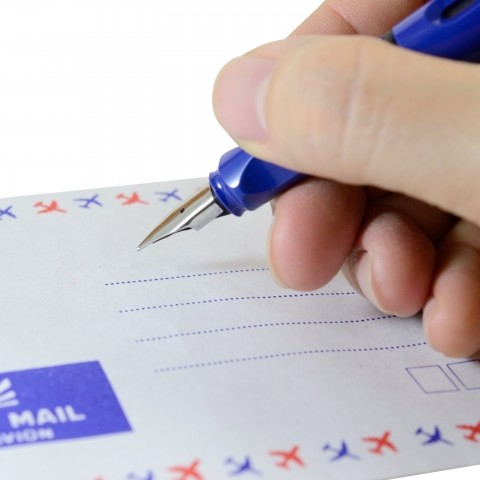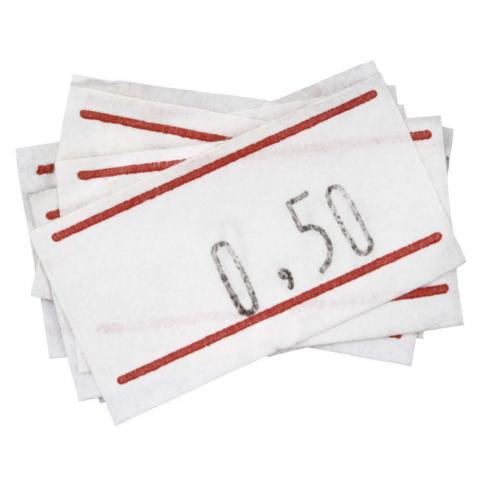
When you start your language-learning journey with Polish, managing to have a conversation with a native speaker is one of the most rewarding experiences. This is why it’s important to work on your conversational skills early on.
What’s the best way to do this? By learning the top ten Polish questions with answers, of course!
Once you learn these, you’ll be prepared for whatever may appear in a simple conversation in Poland. Read on and learn how to ask a question in Polish (and answer it yourself)!
 Table of Contents
Table of Contents
- What’s your name?
- Where are you from?
- Do you speak Polish?
- How are you?
- Where do you live?
- What did you say?
- How old are you?
- “What is it?” and “Who is it?”
- Are you hungry/thirsty?
- How much is it?
- Final Thoughts
1. What’s your name?

The Polish word for “question” is pytanie.
The first and most important pytanie for conversations is “What’s your name?” In Polish, the way one asks this question depends on the level of formality. The rule of thumb is to use the formal version unless the person you’re speaking with is your age, your family member, or anyone else in an informal context.
Formal Questions and Answers
There’s a number of Polish questions you can ask to learn someone’s name. To just ask about their first name, you can say:
- Jak ma pani na imię? (“What’s your name, Ma’am?”)
- Jak ma pan na imię? (“What’s your name, Sir?”)
The answer would be:
- Mam na imię [name]. (“My name is [name].”)
You could also begin by giving your name, and then ask for theirs:
- Mam na imię [name], a pan/pani? (“My name is [name], and yours, Sir/Ma’am?”)
When you want to ask a question in Polish about someone’s name and surname in a formal context, you can say:
- Jak się pani nazywa? (“What’s your name [and surname], Ma’am?”)
- Jak się pan nazywa? (“What’s your name [and surname], Sir?”)
There’s also another way of asking the same question. It’s slightly old-fashioned, but some people in Poland still use it, particularly in places that have to do with public administration:
- [Jaka jest] pani godność? (“[What’s] your name and surname, Ma’am?”)
- [Jaka jest] pańska godność? (“[What’s] your name and surname, Sir?”)
Both types of questions would be answered with:
- Nazywam się [name and surname]. (“My name [and surname] is {name and surname}.”)
If appropriate, you can also add a follow-up question, as follows:
- Nazywam się [name], a pan/pani? (“My name and surname is [name and surname], and yours, Sir/Ma’am?”)
Informal Questions and Answers
Polish language questions in the informal context are similar to those in the formal context. With certain exceptions, the main difference is that formal questions use the conjugated form of the third person singular, while informal questions use the second person singular. Compare:
Formal
- Jak ma pani na imię? (“What’s your name, Ma’am?”)
- Jak ma pan na imię? (“What’s your name, Sir?”)
Informal
- Jak masz na imię? (“What’s your name?”)
You can answer this question with or without the follow-up question a ty? (“and you?”). Here are examples of how it would look to use the follow-up:
- Mam na imię [name], a ty? (“My name is [name], and yours?”)
- Jestem [name], a ty? (“I’m [name], and you?”)
When asking informally about someone’s name and surname, you’d ask and answer:
- Jak się nazywasz? (“What’s your name and surname?”)
- Nazywam się [name and surname]. (“My name and surname is [name and surname].”)
Of course, there’s more to introductions than just giving your name. These lessons may come in handy:
2. Where are you from?
Another very useful Polish question is “Where are you from?” Here are Polish questions and answers for talking about nationality.
Formal Questions and Answers
Below you can find the most popular way of asking this question in a formal context:
- Skąd pani pochodzi? (“Where do you come from, Ma’am?”)
- Skąd pan pochodzi? (“Where do you come from, Sir?”)
The answer to this question is:
- Pochodzę z Poland. (“I come from Poland.)
As always, you can also add a follow-up question: A pan/pani? (“And you, Ma’am/Sir?”).
Here’s a dialogue showcasing a different way to ask and answer the question:
- Jakiej jest pani narodowości? (“What’s your nationality, Ma’am?”)
- Jakiej jest pan narodowości? (“What’s your nationality, Sir?”)
- Jestem [nationality]. (“I’m [nationality].”)
Informal Questions and Answers
When asking this question in informal contexts, there’s one more possible way to answer. We’ll group each question and answer pair here for ease of reference:
- Skąd pochodzisz? (“Where do you come from?”)
- Pochodzę z Poland. (“I come from Poland.”)
- Skąd jesteś? (“Where are you from?”)
- Jestem z Poland. (“I’m from Poland.”)
- Jakiej jesteś narodowości? (“What’s your nationality?”)
- Jestem [nationality]. (“I’m [nationality], and you?”)
If you’re still unsure how to talk about your home country, go to our lesson “Where are you from?” and deepen your knowledge.
3. Do you speak Polish?

Asking about someone’s language skills is a good conversation starter. Here are some Polish questions that will help you do that.
- Czy mówi pani/pan po Polish? (“Do you speak Polish, Sir/Ma’am?”) [formal]
- Czy mówisz po Polish? (“Do you speak Polish, Sir/Ma’am?”) [informal]
- Tak, mówię po Polish. (“Yes, I speak Polish.”)
- Nie, nie mówię po Polish. (“No, I don’t speak Polish.”)
- Czy zna pani/pan Polish? (“Do you speak Polish, Sir/Ma’am?”)
- Czy znasz Polish? (“Do you speak Polish?”)
- Tak, znam Polish. (“Yes, I know Polish.”)
- Nie, nie znam Polish. (“No, I don’t know Polish.”)
How would you ask “Do you speak English?” in Polish? Click on the link and check your comprehension of this topic.
4. How are you?
Asking people how they’re doing is something we do in English a lot. It’s also one of the basic questions in Polish, but it’s not used in every interaction like it is in English. When asking these kinds of questions to Polish people, expect for them to share more than just “Fine, thanks.”
Formal Questions and Answers
- Jak się pani/pan ma? (“How are you, Ma’am/Sir?”)
The answer in this case would be:
- Dziękuję, dobrze. (“Well, thank you.”)
- Mam się dobrze, dziękuję. (“I’m well, thank you.”)
Informal Questions and Answers
There are many more basic Polish questions about someone’s well-being for informal contexts:
- Jak się masz? (“How are you?”)
- Co dobrego? (“What’s good?”)
- Co u Ciebie? (“How are you doing?”)
- Co tam? (“What’s up?”)
- Co słychać? (“How’s it going?”)
There’s also a number of answers that can be given, depending on how much you want to share with the person you’re talking to:
- Dobrze, dzięki. (“Good, thanks.”)
- Spoko, dzięki. (“Cool, thanks.”)
- Jakoś leci. (“It’s going.”)
- Nie narzekam. (“I can’t complain.”)
- A, daj spokój. (“Agh, give me a break.”)
The last answer often begins a list of complaints or bad things that have recently happened to that person.
5. Where do you live?
Other common conversation questions in Polish are those for asking where someone lives.

Formal Questions and Answers
Formal questions in Polish about one’s address are usually asked in official situations, such as in a bank, at a post office, or at a police station:
- Gdzie pan/pani mieszka? (“Where do you live, Sir/Ma’am?”)
- Jaki jest pański/pani adres zamieszkania? (“What’s your address, Sir/Ma’am?”)
- Mieszkam w [city]. (“I live in [city].”)
- Mój adres to ulica [street name] [street number]. (“My address is [street number] [street name].”)
Informal Questions and Answers
There are two ways you can ask this in informal contexts:
- Gdzie mieszkasz? (“Where do you live?”)
- Jaki jest twój adres? (“What’s your address?”)
You can expect these answers:
- Mieszkam na ulicy [street name] [street number]. (“I live on [street number] [street name].”)
- Mój adres to ulica [street name] [street number]. (“My address is [street number] [street name].”)
Did you know that “Where do you live?” is one of the top 25 Polish questions? Check out our lesson to learn even more.
6. What did you say?
Knowing how to ask for clarification is very handy for beginners who may not always understand what’s being said.
Formal Questions and Answers
Here are the formal questions in Polish:
- Przepraszam, co pan/pani powiedziała? (“What did you say, Sir/Ma’am?”)
- Czy może pan/pani powtórzyć? (“Can you repeat, please, Sir/Ma’am?”)
- Przepraszam, nie dosłyszałem, czy może pan/pani powtórzyć? (“I’m sorry, I didn’t hear what you said, can you repeat, please, Sir/Ma’am?”) [if the speaker is a man]
- Przepraszam, nie dosłyszałam, czy może pan/pani powtórzyć? (“I’m sorry, I didn’t hear what you said, can you repeat, please, Sir/Ma’am?”) [if the speaker is a woman]
Here’s a number of possible answers to these questions:
- Oczywiście. (“Certainly.”)
- Już powtarzam. (“I’m repeating now.”)
Informal Questions and Answers
- Co powiedziałeś/powiedziałaś? (“What did you say?”) [asked to a man and a woman, respectively]
Be careful! This question, depending on the tone, may be considered aggressive.
- Co? (“What?”)
The question above is a very common, though not extremely polite, thing to say, making it one of the most important Polish question words.
- Sorry, nie dosłyszałem, możesz powtórzyć? (“I’m sorry, I didn’t hear what you said, can you repeat, please?”) [said by a man]
- Sorry, nie dosłyszałam, możesz powtórzyć? (“I’m sorry, I didn’t hear what you said, can you repeat, please?”) [said by a woman]
- Weź, powtórz. (“Come again.”)
Here are two possible answers:
- Jasne. (“Sure”)
- Zaczekaj chwilę. (“Hold on a second.”)
7. How old are you?
During an initial chat, you may want to ask about your interlocutor’s age.
Formal Questions and Answers
In the formal context, questions about age are often asked during doctor’s appointments, for other health-related services, and in official situations.
- Ile ma pan/pani lat? (“How old are you, Sir/Ma’am?”)
- W jakim jest pan/pani wieku? (“What’s your age, Sir/Ma’am?”)
- Mam 30 lat. (“I’m 30 years old.”)
- Mam 22 lata. (“I’m 22 years old.”)
You can see there’s a difference between the word for “years” in the examples above. To better understand how that word would change with different numbers, check out our lesson “Talking About Your Age.”
Additionally, a man could be asked:
- Kiedy się pan urodził? (“When were you born, Sir?”)
- Jaka jest pańska data urodzenia? (“What’s your birth date?”)
And answer:
- Urodziłem się [day] [month] [year]. (“I was born on [day] [month] [year].”)
The same dialogue with a woman would look like this:
- Kiedy pani się urodziła? (“When were you born, Ma’am?”)
- Jaka jest pani data urodzenia? (“What’s your birth date?”)
- Urodziłam się [day] [month] [year]. (“I was born on [day] [month] [year].”)
Informal Questions and Answers
When having a friendly chat, you’ll probably be more interested in learning someone’s age than getting their actual birthdate. So, the informal question would be as follows:
- Ile masz lat? (“How old are you?”)
- W jakim jesteś wieku? (“What’s your age?”)
- Mam [number] lat/lata. (“I’m [number] years old.”)
A related and often-asked informal question is:
- Kiedy masz urodziny? (“When’s your birthday?”)
- 20 lipca. (“On the 20th of July.”)
8. “What is it?” and “Who is it?”
The two most important “wh-” questions in Polish are “What is it?” and “Who is it?”

Formal and Informal Polish Questions with Answers
The most commonly used “wh-” questions in Polish, these can come in handy when you’re confused (which happens often in a foreign country):
- Przepraszam, czy wie pan/pani co to jest? (“Excuse me, do you know what it is, Sir/Ma’am?”)
- Przepraszam, czy wie pan/pani kto to jest? (“Excuse me, do you know who it is, Sir/Ma’am?”)
- Wiesz co to jest? (“Do you know what it is?”) [informal]
- Wiesz kto to jest? (“Do you know who it is?”) [informal]
- Co/kto to jest? (“What/who is it?”) [informal]
The answer would be a simple:
To jest + [noun in the nominative case mianownik or the person’s name]. (“This is [noun or a name].”)
Would you like to learn more about Polish sentence patterns? Read our article about it! You can also read a list of other question pronouns (Polish question words) on WikiBooks.
9. Are you hungry/thirsty?
I’m sure you would agree that communicating your basic needs and asking about the needs of others are among the most common questions and answers in Polish, and any other language.
Formal Questions and Answers
Here are some ways of asking these questions in Polish formally, and answering them likewise:
- Chciałby pan coś zjeść? (“Would you like to eat something, Sir?”)
- Chciałaby pani coś zjeść? (“Would you like to eat something, Ma’am?”)
- Dziękuję, nie jestem głodny/głodna. (“Thank you, I’m not hungry.”) [answered by a man and a woman, respectively]
- Dziękuję, niedawno jadłem/jadłam. (“Thank you, I’ve just eaten.”) [answered by a man and a woman, respectively]
- Jest pan głodny? (“Are you hungry, Sir?”)
- Jest pani głodna? (“Are you hungry, Ma’am?”)
- Nie, nie jestem głodny/głodna, dziękuję. (“No, I’m not hungry.”) [answered by a man and a woman, respectively]
- Tak, chętnie bym coś przekąsił/przekąsiła. (“Yes, I’d like to have a snack.”) [answered by a man and a woman, respectively]
As you may already know, Poland is known for great food. If you’re not quite familiar with the Polish cuisine yet, check out this complete guide.
- Chce się panu/pani pić? (“Would you like to drink something, Sir/Ma’am?”)
- Jest pan spragniony? (“Are you thirsty, Sir?”)
- Jest pani spragniona? (“Are you thirsty, Ma’am?”)
- Nie, dziękuję, proszę się nie kłopotać. (“No, thank you, please don’t go to any trouble.”)
- Tak, chętnie napiłbym/napiłabym się wody. (“Yes, I’d like some water, please.”) [answered by a man and a woman, respectively]
Informal Questions and Answers
Here’s how to have a similar dialogue informally:
- Chcesz coś zjeść? (“Do you want to eat something?”)
- Jesteś głodny/głodna? (“Are you hungry?”)
- Dzięki, nie jestem głodny/głodna. (“Thanks, I’m not hungry.”) [answered by a man and a woman, respectively]
- Nie, nie jestem głodny/głodna. (“No, I’m not hungry.”) [answered by a man and a woman, respectively]
- Chce ci się pić? (“Would you like to drink something?”)
- Nie, dzięki. (“No, thanks.”)
- Chętnie! (“Sure!”)
- Jasne! (“Okay!”)
The last three answers could also be used to answer the questions about eating.
10. How much is it?

Some of the most common questions and answers in Polish that every beginner should learn are those for asking the price. This question is most likely to be asked in a formal context.
Formal Questions and Answers
- Przepraszam, ile to kosztuje? (“Excuse me, how much does it cost?”)
- Przepraszam, po ile te jabłka? (“Excuse me, how much for these apples?”)
Would you like to practice how to ask “How much does it cost?” in Polish and learn more Polish question words? Go to our lesson “Asking how much something costs.”
- To kosztuje [number] złotych/złote. (“It costs [number] PLN.”)
- [Number] złotych/złote. (“[Number] PLN.”)
Are you still a bit shaky on the Polish numbers? These lessons may help you:
11. Final Thoughts
Today you’ve learned common questions and answers in Polish. These are the top Polish questions you need to know for conversations with Polish people. Which question do you think you’ll use the most? Let us know in the comments section!
If you’re set on truly learning Polish and knowing more than just how to ask questions in Polish, you should get an account with PolishPod101! You’ll be able to use hundreds and hundreds of Polish audio and video lessons, get access to unique materials and tools, and get your daily dose of Polish delivered straight to your inbox with 365 mini-lessons.
Check it all out with a free trial!










